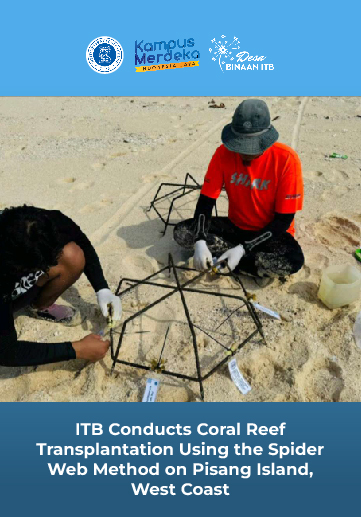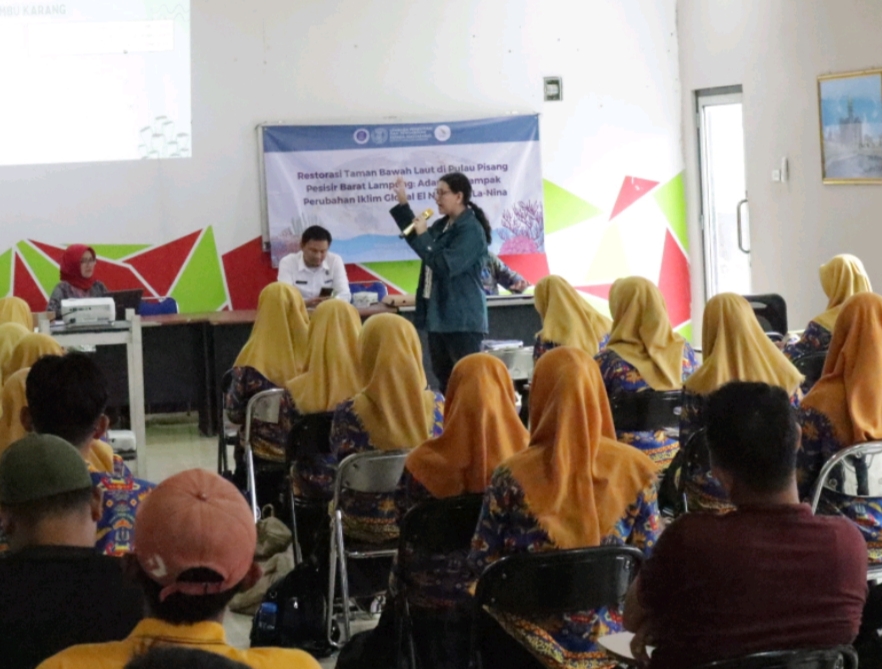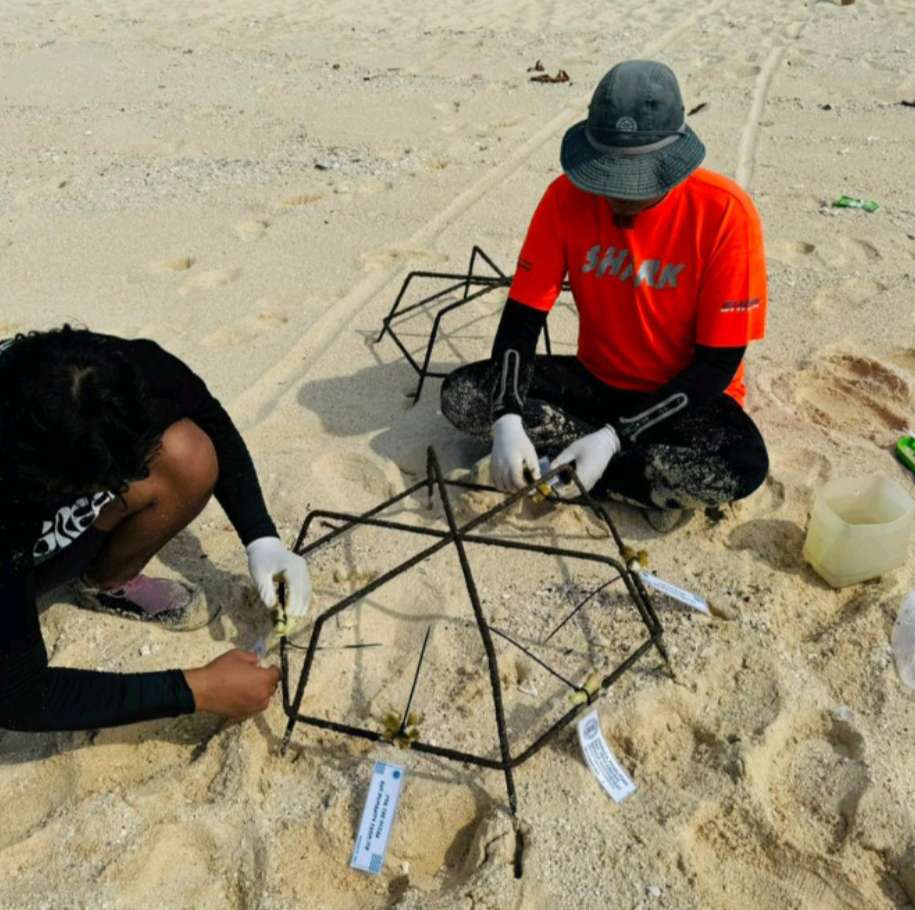

The Bandung Institute of Technology (ITB) has undertaken a coral reef transplantation project using the spider web method on Pisang Island, Pesisir Barat, Lampung, as part of their concrete actions.
Agung Adha, Head of Capture Fisheries at the Fisheries Department of Pesisir Barat Regency, explained that the El Nino and La Nina phenomena due to recent global climate change have impacted coastal communities, particularly the fishing groups in Krui, Pesisir Barat Regency, Lampung Province.
"Extreme tides, drought, and heavy rainfall are some of the effects of El Nino and La Nina that put physical stress on marine ecosystems and potentially degrade their ecological functions," said Agung.
Dr. Nia Kurniasih, head of the ITB community service team, added that coral reefs are essential ecosystems that balance the food chain by supplying nutrients, and critical climate changes have led to a decline in fish populations.
"Therefore, coral reef restoration is needed as a form of adaptation and disaster mitigation to maintain the balance of underwater ecosystems," said Dr. Nia Kurniasih.
According to Dr. Nia, ITB is conducting coral reef transplantation using the spider web method on Pisang Island, Pesisir Barat Regency, as a way to address environmental issues and potential socio-economic challenges.
"In addition to coral reef transplantation, our team from ITB, accompanied by the Fisheries Department of Pesisir Barat Regency, also provides education to high school students and fishermen on the importance of preserving underwater ecosystems for sustainable human life," she explained.
Dr. Nia Kurniasih gave a brief lecture on the urgency for the community of Pisang Island and its surroundings to adapt to climate change issues through marine environmental awareness.
This concrete action by the ITB Community Service Team was positively received by Arief Mulyawan MSi, Head of UPTD BBI Fisheries Department.
"Our community, especially fishermen and fishery workers, are directly and indirectly affected by climate change and must quickly learn to adapt," said Arief.
Arief further emphasized the crucial role of higher education institutions as intellectual leaders, hoping for continued activities that can provide solutions through knowledge and technology.
"This is to enhance the economic value of fishery products affected by climate disasters," Arief concluded.
Related News:

